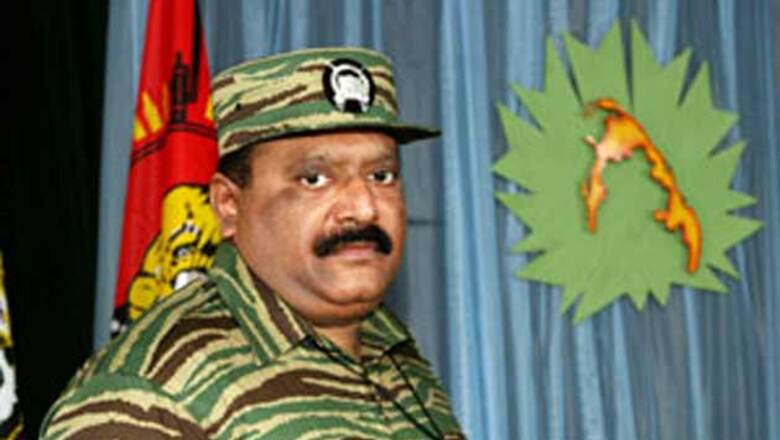
views
New Delhi: One year after Tamil Tigers chieftain Velupillai Prabhakaran was killed the same way he sent so many to their death, Sri Lanka remains ethnically divided but not many mourn the once feared guerrilla.
Even as Colombo celebrates the crushing defeat of his Liberation Tigers of Tamil Eelam (LTTE) at the hands of its military, the anti-government Tamil National Alliance (TNA) has called for mourning for the thousands of civilians killed in the final months of the war that ended in May last year.
But while Tamil suffering may evoke sympathy among the majority Sinhalese community, few in Sri Lanka feel sorry for the late LTTE leader whose passion for self-defeating violence has left the Tamils reeling in misery.
"Apart from being callous and bankrupt, he has been an idiot," Rajan Hoole, a respected Sri Lankan Tamil human rights activist, said in a candid assessment of a man who had vowed to form an independent Tamil homeland but failed.
"Whatever aims Prabhakaran may have had, the Tamils have been taken in the opposite direction," Hoole told IANS in a telephonic interview.
"But that is only one part of the story," he said. "The way the government is dealing with the Tamil problem, Prabhakaran might end up having the last laugh."
Prabhakaran, who founded the LTTE in 1976 and spearheaded a horribly bloody separatist campaign, was killed by the Sri Lankan military on May 18 last year, ending a quarter century long armed conflict that consumed over 90,000 lives.
Also killed with Prabhakaran in the marshy, forested battlefields of Mullaitivu district were virtually all his lieutenants and hundreds of his fighters, destroying in one stroke an outfit that was once considered as potent as Al Qaeda.
Today, thousands of Tamil civilians, who survived the blood-soaked final stages of the war are still in refugee camps in the country's north. Many former LTTE cadres are in detention, the hardened ones in military custody.
It is not that Prabhakaran has been forgotten.
Many of the Tamils who fled Sri Lanka over the decades and now live in large numbers in the West still see the man as a hero and are determined to keep alive his legacy.
But within Sri Lanka, support for Prabhakaran within the Tamil community is minimal, simply because it is they who suffered the most because of the activities of the Tigers.
"The Tamil people do not want another armed struggle again," said Tamil politician Dharmalingam Sitharthan, who had known Prabhakaran in their student days in Jaffna.
"But there are those in the northeast (of Sri Lanka) who still view him as a symbol of Tamil nationalism," he added.
Sitharthan and other Tamils who spoke to IANS, some not wanting to be quoted by name, agreed that the LTTE would never be able to revive itself even if some of its members are still on the run, with revenge on their mind.
Some Tamils, including those in the Tamil provincial government in Sri Lanka's eastern province, said that Colombo was determined not to give any meaningful political concessions to the Tamil community.
This, they feared, stood in the way of ethnic reconciliation in Sri Lanka.
"The fact is the Sri Lankan government is working towards Tamil Eelam in some sense by not addressing Tamil political problems," Hoole said. "Sinhalese politics seems linked to the fear of Eelam and separatist terrorism.
"There is no need for large military settlements that have come up in Tamil areas," he said.
A young former woman LTTE guerrilla told IANS: "So many years of fighting has gone waste. Today, we are weaker than in 1983 (when Tamil militancy started). I feel sorry for myself and the Tamil community."

















Comments
0 comment